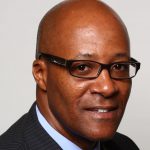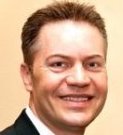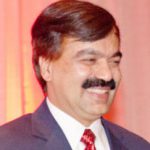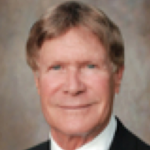(This was originally published on the Robroy website, and it was so nice and I was very proud of all the wonderful things everyone said, that I wanted to share it here.)
May 1, 2015 marked the 20th anniversary of David Marshall’s leadership of Robroy Industries.
Let’s start at the beginning.
“Sometimes your worst mistakes end up being your best decisions,” says Chairman of the Board, Peter McIlroy, of Robroy Industries.
“Twenty years ago, I decentralized Robroy by setting up four divisions with a president in each division. Within a three-month period, I had hired four senior officers, including two new presidents. David Marshall became President of the Conduit Division in Gilmer. About four months had passed when a friend of mine asked how my new hires were working out. I replied that three of them were working out well and that one of them—David Marshall— was still a question mark. I said that he had a lot of funny expressions and I didn’t know if our people would be able to get along with him. I was right. Within a month, 10% of Gilmer associates quit.
But that’s not the bad news. It’s the good news. He cleaned up the plant and demanded excellence from everyone. Within a short time, Gilmer became exceptional and kept getting better as the months passed. David was so good that I kept giving him promotions until he eventually became our Robroy President and Chief Operating Officer. Oh, and by the way, the three senior officers that I hired along with David are no longer with the organization. One out of four would only be a .250 batting average in baseball but when your one hit is a grand slam home run that’s usually all it takes to be a winner. David Marshall is my grand slam!”
As Peter notes, David uses a variety of expressions: some unusual, some are foreign language expressions, some of them are funny, and some are startling—but all of them have purpose. Of all his expressions, none is more purposeful than his ongoing statement of mission:
“Robroy Industries must be an UNCOMMON company.”
“Uncommon,” interestingly enough, is a “common” word in business-speak. Unfortunately, within many organizations, being uncommon is just lip service that means little and results in even less.
Not so, at Robroy Industries.
Thanks to David’s vision and guidance, being “uncommon” is the backbone of the corporate culture—a collective of good business practices—a way of life.
To David, and to the entire company, being uncommon means performing larger than what we actually are as a company by accepting that quality, safety, integrity, teamwork, lack of ego, and working smart, are all non-negotiable. We are, it can truthfully be said, competing in the shadow of giant competitors—and winning because we are, in fact, uncommon.
Sometimes it is easier to define what “being uncommon” means by stating the black and white results of conducting business in an uncommon way.
 These facts are provided by Mike Deane, CFO, Robroy Industries:
These facts are provided by Mike Deane, CFO, Robroy Industries:
Uncommon Success #1:
Robroy Industries has had an uncommon and remarkable seven record years of profitability during the past thirteen years.
Uncommon Success #2:
Our organization has had eleven consecutive years with profitability exceeding 20% of revenue.
 Jeff Seagle, President, Stahlin Enclosures, offers some thoughts on the subject:
Jeff Seagle, President, Stahlin Enclosures, offers some thoughts on the subject:
“From the day I met David 20 years ago, his unrelenting theme was to be uncommon. It was a message I could sign up to as a young professional with an inward drive to make a difference. David has never wandered from this theme. He has created a culture that allows those who desire to be part of a winning team to excel. This has manifested itself into the creation of very successful businesses, including Stahlin.
David has set high expectations, but unlike so many leaders, he has backed them through his personal support and commitment and relentless quest to succeed. Throughout this 20-year journey, he has allowed Stahlin to blossom and those around him, like myself, to achieve things we might not have ever thought possible. It’s been a great and ‘uncommon’ journey with more to come— because like David, we are never finished!”
The examples of uncommon results continue:
Uncommon Success #3:
More than $300 million added to the equity of the business since going private in 2001.
 The growth of Robroy has been part of the life of the company’s new CEO, Rob McIlroy, with his close interaction with David Marshall.
The growth of Robroy has been part of the life of the company’s new CEO, Rob McIlroy, with his close interaction with David Marshall.
In Rob’s own words:
“Where is David Marshall from—South Africa, the UK, Canada, North Gilmer? No one really knows. How did he get past his first interview with Robroy, especially with that strange accent and quirky personality? No one really knows. One thing we do know for sure is that we are lucky to have found him. Over the past 20 years, David has transformed our company. The non-negotiables, the performance based culture and the drive for excellence has led to unprecedented results. Great leaders create a vision, demand excellence, and mentor and support the team to achieve their goals. Robroy is a team that each and every associate should hold in great esteem. Through his leadership, David has guided all of us to contribute to the ongoing success of the organization. That is what great leaders do. I’ve watched so many individuals, including myself; grow under David’s tutelage. He loves to mentor. Warning! You may learn some weird analogies and crazy sayings along the way, but it’s a great ride. Thank you David, for your hard work and leadership over the past 20 years. We wouldn’t be where we are today without you. You’ve truly made Robroy an “uncommon” company.”
 It can be said with complete certainty that one of the most important requisites of success in business is the ability to bring together persons with diverse professional skills—plus widely varying personalities and backgrounds—and help them work together as one for the good of all. A story told by Craig Mitchell, General Manager of Stahlin Enclosures, illustrates how David Marshall possesses and practices that ability.
It can be said with complete certainty that one of the most important requisites of success in business is the ability to bring together persons with diverse professional skills—plus widely varying personalities and backgrounds—and help them work together as one for the good of all. A story told by Craig Mitchell, General Manager of Stahlin Enclosures, illustrates how David Marshall possesses and practices that ability.
“The first time I became aware of David was during the interview process. Jeff Seagle indicated that I needed to fly to Texas to meet with David Marshall. When I arrived at the car rental place at the Dallas airport, I began talking to the attendant. He was an old black guy and when I said I was going to Gilmer, Texas, he looked at me—a young black guy — shook his head and said: ‘Oh boy, good luck and be careful.’
At that point, I was convinced that there is something inherently wrong with East Texas. With a name like David Marshall, he is probably some ex-Texas Ranger (not the baseball-playing kind), 6’6″, weighing 350 pounds, and wearing a cowboy hat, boots, and large belt buckle that reads: ‘the South will return.’
The next morning, I met with David for the interview. He was not an ex-Texas Ranger, not enormous, and not a cowboy. He seemed normal. During the initial stages of the interview, he said: ‘Tell me a little about yourself, go anywhere you want, but make sure you entertain me’. We talked for what seemed like hours— about the auto industry, managing plants, and many other issues. I soon realized that he was very knowledgeable about all topics related to business and that Robroy was very successful. The one thing that really stuck out was that while I was closing plants during the last recession, Robroy, under David’s leadership, didn’t have one single layoff during that time. While I was in Gilmer, I met women in management roles, plus various other folks from many different cultures in leadership positions. I said then, and believe today, that a big part of David’s importance to all of us is that he doesn’t care what you look like, only that you perform and meet the vision of the organization.”
Craig’s recollections speak to David’s contribution to the forward movement of human talent at Robroy Industries and helps explain:
Uncommon Success #4:
During the past 20 years, Robroy Industries has achieved an amazing 300% improvement in sales per associate.
 Sales growth depends, of course, on the long-term achievement of quality — and that is where Robroy Industries, with guidance from David Marshall, has been able to carve out leadership roles in the markets we serve, despite being a tiny organization compared to some against whom we compete. Steve Voelzke, President of Robroy Industries, Conduit Division, talks about both quality and David.
Sales growth depends, of course, on the long-term achievement of quality — and that is where Robroy Industries, with guidance from David Marshall, has been able to carve out leadership roles in the markets we serve, despite being a tiny organization compared to some against whom we compete. Steve Voelzke, President of Robroy Industries, Conduit Division, talks about both quality and David.
“Although I was not part of the organization 20 years ago, I met David the first year he started and so began our relationship. He has been a customer, partner, counselor, friend, boss; and, most importantly, a mentor. It is difficult to believe the transformation that has gone on in the organization in the years since his arrival. Robroy is not only a successful company, but also, the industries we serve are better because of David’s passionate dedication to quality and never giving up the value we provide to the market. He always has a focus on the outcome required and drives the kind of culture that will get the organization where it needs to be. David is a very unique and uncommon leader who has the ability to think through what is about to happen before it does and he will motivate people to a better position. He is never compromising in his commitment to quality and performance, and is grounded in his convictions that one must do what is right, and not just popular. He is always moving forward and yet is patient enough to put up with imperfection. He is a unique combination of mind and heart.”
Everyone who knows David knows that he is inclined to measure everything. “If you can’t measure it,” he states: “you can’t manage it.” Much of the company’s success during the past two decades is rooted in the fact that, based on knowledge of the “numbers” and what was happening both from within the organization in terms of efficiency—and in the marketplace in terms of business economics—Robroy Industries was able to maximize itself during good times, and protect itself while still making gains during challenging time.
 To Vijay Kumar Tahiliani, Controller for Robroy Industries Conduit Division, David’s command of numbers is certainly important—but there are qualities of even more importance. According to Vijay:
To Vijay Kumar Tahiliani, Controller for Robroy Industries Conduit Division, David’s command of numbers is certainly important—but there are qualities of even more importance. According to Vijay:
“With my background in business and accounting, I used to negotiate very hard on a transaction-by-transaction basis. After working for, and with David, my outlook changed significantly. He taught me that relationships and partnerships are more important than just a transaction. I still remember my big project on the Avinger Benders, where we were having some issues and I wanted to delay a payment to the vendor. David clarified the situation by saying: ‘We cannot hurt our vendor due to incompetence within our team.’ The second instance was where one of our trusted consultants moved from one organization to another organization. In order to keep that relationship going, we moved our business to keep the same consultant. We want partners not just vendors.
I have learned this from David and now it is ingrained in my practices. Another critical thing that I learned from David is—don’t build barriers within the organization, whether vertically or horizontally. In the beginning, it was odd to hear him saying that anyone can talk to him or bring their issues directly to him, if one believes that one is right and not being heard. His specific words are: ‘No one has been fired for doing the right thing.’ This has created an environment of Self-Managed Performance in the organization.”
“Doing the right thing” has certainly contributed to:
Uncommon Success #5:
A 133% improvement in inventory turnover during the last 20 years.
Uncommon Success #6:
Over the last 20 years, as Robroy Industries business has expanded, our ability to turn our receivables and inventory into cash has improved 150% more than the liabilities we have incurred to our vendors in doing so.
Uncommon Success #7:
18% less in accounts receivable past due over the past 20 years.
 Eric Nichols, Operations Manager, Duoline Technologies, recalls when “doing the right thing” caused something exceptional to happen at the Duoline facility in Gilmer:
Eric Nichols, Operations Manager, Duoline Technologies, recalls when “doing the right thing” caused something exceptional to happen at the Duoline facility in Gilmer:
“Let us not forget the time David shut down a multimillion dollar plant the very day we started back up from a two- week shutdown! Who the heck does that? And why in the heck would he do that? Well, David Marshall did that because our housekeeping was not up to the standard of being the best. He has a passion for being the best and we stayed closed until we got it right. I have had many leaders and bosses during my career. Some were okay, but most were not worth the ink their resumes were written with. Then, seven years ago, I interviewed with this funny sounding man who said he was from North Gilmer. I would have to say that it was the most challenging interview I had ever experienced. He challenged my thoughts and ideas but shared his with me as well. I got the job after that interview and can truly say it has been the most challenging and rewarding seven years of my life. Mr. Marshall will let you try things that at the time may seem like fantastic ideas. Often, they work. When they don’t, he will laugh with you and say: ‘I’ll bet we won’t do that again!’
 Donna Waterstraat, Operations Manager for the Robroy Industries Conduit Division, provides a great wrap-up of David Marshall’s 20 years with the company:
Donna Waterstraat, Operations Manager for the Robroy Industries Conduit Division, provides a great wrap-up of David Marshall’s 20 years with the company:
“I have worked with David for 19 years. Yes I said ‘with’ and not ‘for’ because David is not just my boss. He is also my coach, mentor, and friend. I can tell you that if it weren’t for David Marshall, Robroy would not be the organization it is today. Some of the changes under David’s leadership have been product enhancements such as ETL certification, equipment improvements including threaders, benders, molds; and process changes such as the implementation of Plant Work Flow, a Warehouse Management System, Document Manager, and a Quotations System. The list goes on and on. I cannot think of any area that has not been affected by change–driven by David. Always striving for improvement, David was responsible for us becoming ISO certified, continuing to enhance Corrosion College, implementing our Safety SHIELD team, and driving Robroy culture with our non-negotiables and vision statement. David has the ability to push individuals to their full potential. If you looked up the word ‘uncommon’ in the dictionary you would likely find a picture of David Marshall.”
Uncommon.
An uncommon twenty years.
An uncommon company.
David Marshall: an uncommon man.


